Regular water heater maintenance prevents up to 25% of energy waste, saving homeowners hundreds on annual utility bills while avoiding costly repairs. By scheduling routine inspections, flushing sediment, checking anode rods, and testing safety valves, you ensure efficient performance and a longer appliance life.
This guide explores five key advantages—boosted energy efficiency, extended lifespan, enhanced safety, significant cost savings, and reliable hot water with better quality—and explains why professional servicing outperforms DIY approaches and how it supports environmental sustainability.
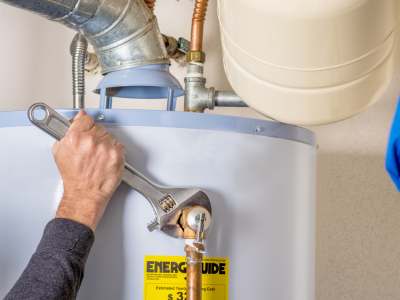
How Does Water Heater Maintenance Boost Energy Efficiency and Lower Utility Bills?
Regular servicing optimizes heat transfer and minimizes energy loss, directly reducing monthly heating expenses. Neglected tanks accumulate sediment that acts as insulation, forcing elements to work harder and driving up electric or gas consumption.
What Role Does Sediment Buildup Play in Reducing Efficiency?
Sediment consists of mineral deposits that settle at the bottom of a water heater tank and block efficient heat exchange. When these hard particles insulate the heating element, more energy is required to raise water temperature.- Sediment increases recovery time, causing longer heating cycles.
- Reduced thermal conductivity raises utility usage by up to 20%.
- Layering accelerates corrosion, undermining tank integrity and performance.
How Does Flushing Your Water Heater Improve Performance?
Flushing removes trapped minerals and debris, restoring optimal heating capacity and reducing element strain.- Turn off power or gas supply.
- Attach a garden hose to the drain valve.
- Open a hot-water faucet and the drain valve to expel water.
- Flush until clear water exits, then close valves and restore power.
Can Regular Maintenance Help You Save on Energy Costs?
Yes, annual maintenance cuts energy bills by balancing temperature settings, cleaning components, and ensuring thermostat accuracy.- Calibrating the thermostat prevents overheating and standby loss.
- Inspecting insulation and pipewrap reduces heat escape.
- Replacing faulty heating elements or burners restores consistent performance.
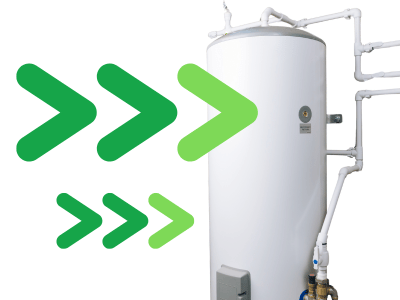
How Can Regular Maintenance Extend the Lifespan of Your Water Heater?
Routine checks and part replacements curb corrosion and mechanical wear, adding years to your appliance’s functional life. Proactive service preserves tank integrity and prevents early failure.
Why Is Anode Rod Inspection Critical for Preventing Corrosion?
The anode rod is a sacrificial component that attracts corrosive elements, protecting the steel tank. Over time, it depletes and must be replaced to avoid inner-tank rust.| Component | Attribute | Typical Lifespan |
|---|---|---|
| Anode Rod | Corrosion Resistance | 3–5 years |
| Steel Tank | Structural Integrity | 8–12 years |
How Does Early Detection of Issues Prevent Major Breakdowns?
Inspecting connections, valves, and burners reveals leaks, scale buildup, or pilot failures before they escalate. Spotting minor drips or pressure irregularities lets technicians address problems with minimal downtime and expense.
What Are the Differences in Lifespan Between Tank and Tankless Water Heaters?
Comparing tank versus tankless models highlights service intervals and longevity variations.| Heater Type | Service Interval | Expected Lifespan | Key Maintenance Task |
|---|---|---|---|
| Tank (Storage) | Annually | 8–12 years | Flush sediment, inspect anode rod |
| Tankless (On-Demand) | Every 1–2 years | 15–20 years | Descale heat exchanger, check filters |
What Safety Benefits Does Water Heater Maintenance Provide?
Professional maintenance verifies that safety features function correctly, preventing scalding, explosions, gas leaks, and electrical hazards. Well-maintained heaters safeguard households from catastrophic failures.
How Does Testing the Temperature and Pressure (T&P) Valve Prevent Hazards?
The T&P valve releases excess pressure and temperature, avoiding tank rupture. Technicians lift the valve lever to confirm water flow and immediate resealing. A fully operational T&P valve:- Relieves dangerous buildup above safe thresholds.
- Prevents scalding from runaway heat.
- Protects against structural failure and flooding.
How Can Maintenance Reduce Risks of Gas Leaks and Electrical Faults?
Inspecting gas connections, burner flames, and pilot assemblies eliminates combustion byproduct leaks. Checking wiring integrity and element contacts for electric heaters ensures safe current flow and prevents shorts.
What Are the Signs of Unsafe Water Heater Operation?
Key warning indicators include:- Unusual hissing or banging noises signaling sediment or pressure issues.
- Rust-colored or foul-smelling water suggesting corrosion or bacterial growth.
- Pilot outages or irregular burner color in gas models.
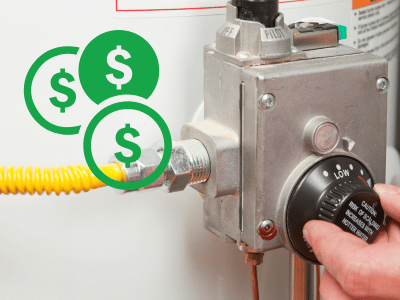
How Does Water Heater Maintenance Lead to Significant Cost Savings?
Preventative inspections and tune-ups minimize breakdowns and uphold warranties, avoiding high emergency service fees and early replacements.
How Does Preventative Maintenance Avoid Expensive Repairs and Replacements?
Catching minor leaks, faulty components, or failing parts early reduces labor and material costs by up to 70% compared to emergency overhauls. Replacing an anode rod costs a fraction of installing a new tank.
Why Is Warranty Compliance Important for Cost Protection?
Many manufacturers require annual service records to honor warranty claims. Retaining documentation from licensed professionals ensures coverage for defects and component failures.
What Are the Typical Costs of Maintenance Versus Emergency Repairs?
Below is a comparison of average expenses:| Service Type | Typical Cost Range | Impact on Warranty | Recommended Frequency |
|---|---|---|---|
| Annual Maintenance | $100–$200 | Maintains coverage | Every 12 months |
| Emergent Tank Repair | $500–$1,200 | Void without record | As needed |
| Full Water Heater Replacement | $800–$2,500 | New warranty starts | One per lifecycle |
How Does Maintenance Ensure Consistent Hot Water Supply and Improve Water Quality?
Scheduled servicing stabilizes temperature delivery and eliminates contaminants, resulting in reliable performance and fresher-tasting water.
How Does Sediment Removal Prevent Cold Showers and Inconsistent Performance?
Removing mineral deposits ensures even heating and full tank capacity, preventing spot cooling and fluctuating hot‐water flow. Clean tanks deliver steady temperature and reduce noise from boiling sediment.
What Maintenance Steps Improve Water Taste and Eliminate Odors?
Flushing drains off sediment that can harbor bacteria and cause metallic or sulfur smells. Replacing sacrificial anode rods with powered variants can further inhibit odor-causing reactions.
How Does Regular Service Maintain Optimal Water Pressure and Flow?
Clearing scale buildup from dip tubes and heater outlets preserves unrestricted passage. Inspecting pressure regulators and mixing valves confirms balanced flow and prevents scald risks.
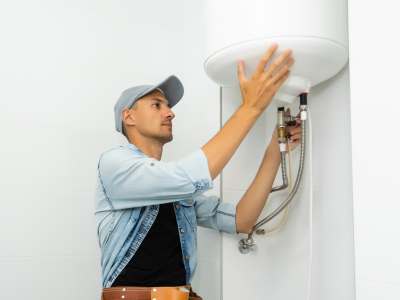
Why Is Professional Water Heater Maintenance Recommended Over DIY?
Experienced plumbing technicians apply specialized tools, adhere to safety codes, and secure warranty compliance—advantages beyond typical homeowner capabilities.
What Are the Key Maintenance Tasks Performed by Plumbing Professionals?
- Full system inspection of valves, burners, thermostats, and wiring.
- Expert flushing and descale with proper disposal procedures.
- Anode rod assessment and replacement using manufacturer-spec parts.
- T&P valve testing and leak-down analysis.
How Does Professional Service Ensure Safety and Warranty Compliance?
Licensed plumbing technicians follow local codes for gas and electrical systems, document work for manufacturer audits, and carry liability insurance—protecting homeowners from risk.
When Should You Schedule Annual Water Heater Maintenance?
Plan service during spring or fall, when demand is lower and professional availability is higher. Annual intervals align with warranty requirements and seasonal energy-use patterns.
What Are the Environmental and Sustainability Benefits of Water Heater Maintenance?
Maintained heaters consume less energy, reduce greenhouse gas output, and support eco-friendly operation throughout their lifecycle.
How Does Improved Energy Efficiency Reduce Your Carbon Footprint?
By restoring efficient heat exchange and minimizing fuel consumption, each service appointment can cut CO₂ emissions by up to 1,000 lbs per year for gas-fired models.
Can Maintenance Help Your Home Meet Energy Star Standards?
Homes with regularly serviced water heaters more easily qualify for Energy Star certification, demonstrating compliance with established efficiency benchmarks and unlocking rebates.
What Role Does Maintenance Play in Sustainable Appliance Use?
Extending appliance life delays landfill disposal and lowers resource demands. Properly maintained water heaters maintain reliability, reducing the need for frequent replacements and contributing to circular-economy goals.
Engle Services offers water heater maintenance, general plumbing maintenance, plumbing repairs, and plumbing installations. in Sylacauga, Talladega, Birmingham, Shelby County (Hoover, Chelsea), Alabaster, Pell City, Dadeville, Wetumpka, Montgomery and all their surrounding areas.
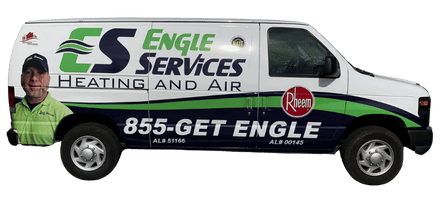 Ready to schedule with our team of HVAC Technicians, Electricians, and Plumbers?
Schedule an appointment online or give us a call at (855) GET-ENGLE
Ready to schedule with our team of HVAC Technicians, Electricians, and Plumbers?
Schedule an appointment online or give us a call at (855) GET-ENGLE
